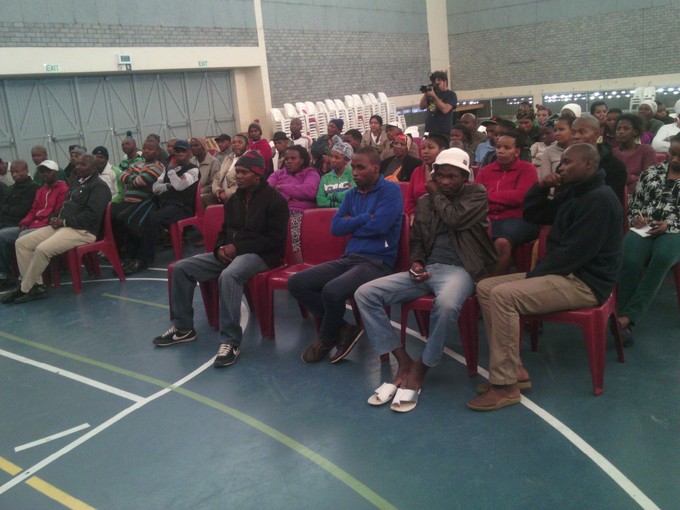Joe Slovo residents resist move to Delft
1,590 houses to be built by 2018
Joe Slovo shackdwellers have refused to move to Delft while houses are built for them, unless transport to Langa schools is provided for their children.
The Western Cape Department of Human Settlements wants the shackdwellers to relocate to a temporary area in Delft while the remaining 1,590 households are completed on the land they are occupying.
They should be able to move back in stages into the new houses by September 2018, according to Thando Mguli, Western Cape Human Settlements Head of Department.
The project began in 2005 and was supposed to be completed in 2013.
So far 1,296 houses have been completed in this phase of the project, out of a planned 2,886 houses.
But at a meeting of about 250 shackdwellers, the human settlements department and the Housing Development Agency at the weekend, residents were resistant to the move.
Nomisa Bolitye, who has been living in a three-roomed shack since 2004, said she would only move if she was assured she would have more than one room in Delft. “How can I stay in one room with my brothers?” she said.
Many of the residents expressed concern about transport for their children from Delft to the Langa schools they attend.
Mguli said transport was available for the learners. But resident Stanford Velile was sceptical. “We always talk to our friends who have relocated and they tell us transport was only provided for three weeks,” he says.
Velile has been staying in a shack since 1996. He said he would not move to Delft.
Pindile Sipango, who has lived in Joe Slovo since 2003, also did not want to move.
“I cannot move for the second time. The place I currently occupy is my permanent home,” he says.
Mguli said it was clear that further engagement with residents was necessary. “By so doing I believe they will finally agree to relocate.”
Support independent journalism
Donate using Payfast

© 2016 GroundUp. 
This article is licensed under a Creative Commons Attribution-NoDerivatives 4.0 International License.
You may republish this article, so long as you credit the authors and GroundUp, and do not change the text. Please include a link back to the original article.

